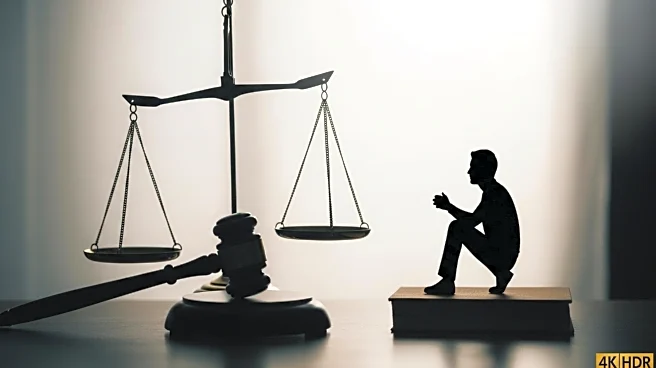What's Happening?
The Trump administration is contesting Kilmar Abrego Garcia's asylum application in the United States, citing his alleged membership in the MS-13 gang. The Department of Homeland Security has released court documents arguing that Abrego Garcia is ineligible for asylum due to his association with a designated foreign terrorist organization. Abrego Garcia, who fled gang violence in El Salvador, has denied these allegations. He was previously granted protection from deportation due to a well-founded fear of gang violence. His legal team is seeking to reopen his 2019 immigration case to apply for asylum again, despite the risks of deportation.
Why It's Important?
This case highlights the complexities of U.S. immigration policy, particularly concerning individuals with alleged gang affiliations. The Trump administration's stance reflects broader efforts to tighten immigration controls and address gang-related threats. The outcome of Abrego Garcia's case could set a precedent for how asylum claims involving alleged gang members are handled, impacting future immigration policy and the lives of those seeking refuge from violence. The case also underscores the challenges faced by immigrants in proving their eligibility for asylum amid accusations of criminal activity.
What's Next?
Abrego Garcia's legal team is preparing to argue his case in immigration court, aiming to prove his eligibility for asylum. The Trump administration has indicated its intent to deport him if the case is reopened. The court's decision will be pivotal in determining Abrego Garcia's future in the U.S. and may influence similar cases. Immigration advocates and legal experts are closely monitoring the proceedings, which could prompt discussions on the balance between national security and humanitarian considerations in asylum cases.
Beyond the Headlines
The case raises questions about the fairness and transparency of the asylum process, particularly for individuals accused of gang affiliations without formal charges. It also highlights the potential for political influence in immigration decisions, as policies may shift with changes in administration. The broader implications for U.S.-El Salvador relations and the treatment of asylum seekers from gang-affected regions are significant, potentially affecting diplomatic and humanitarian strategies.









